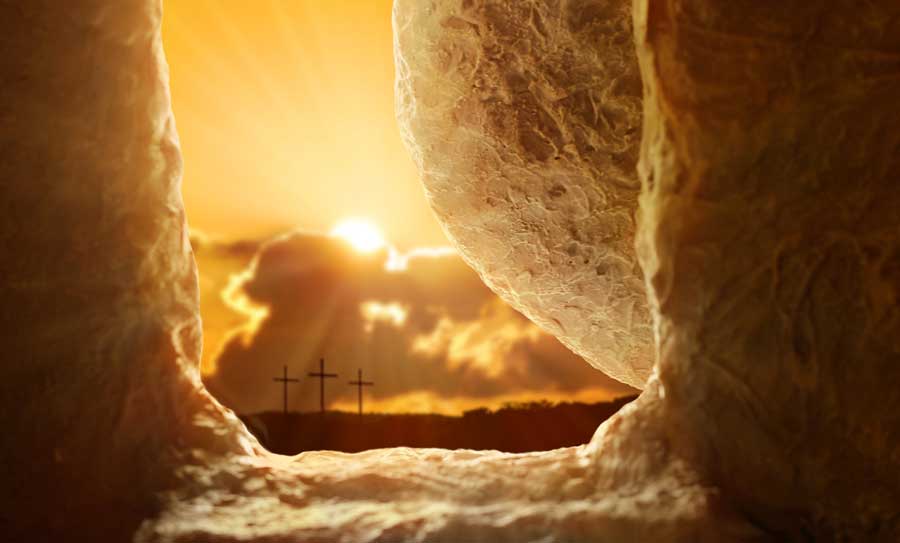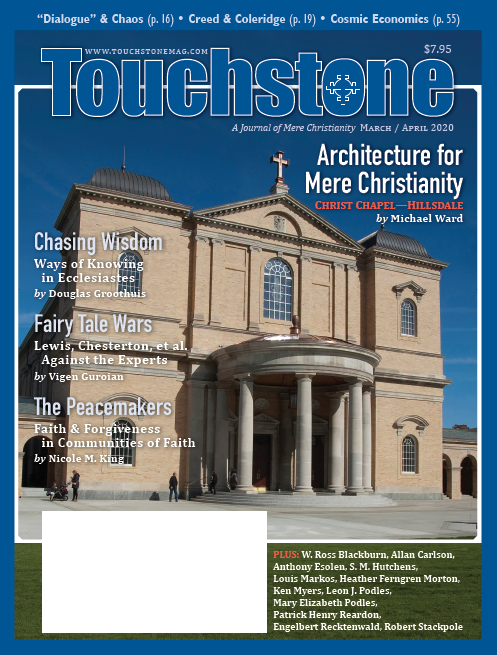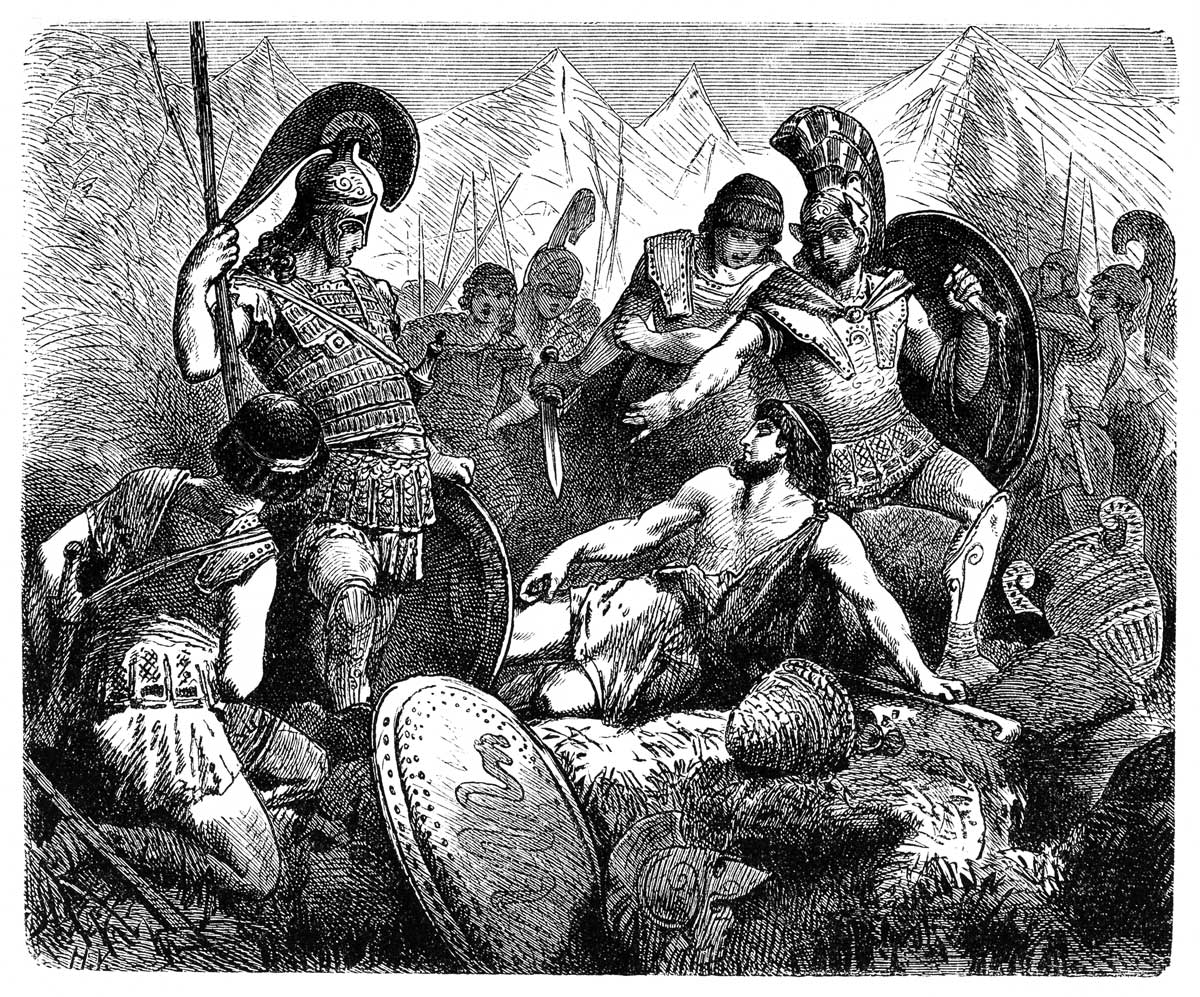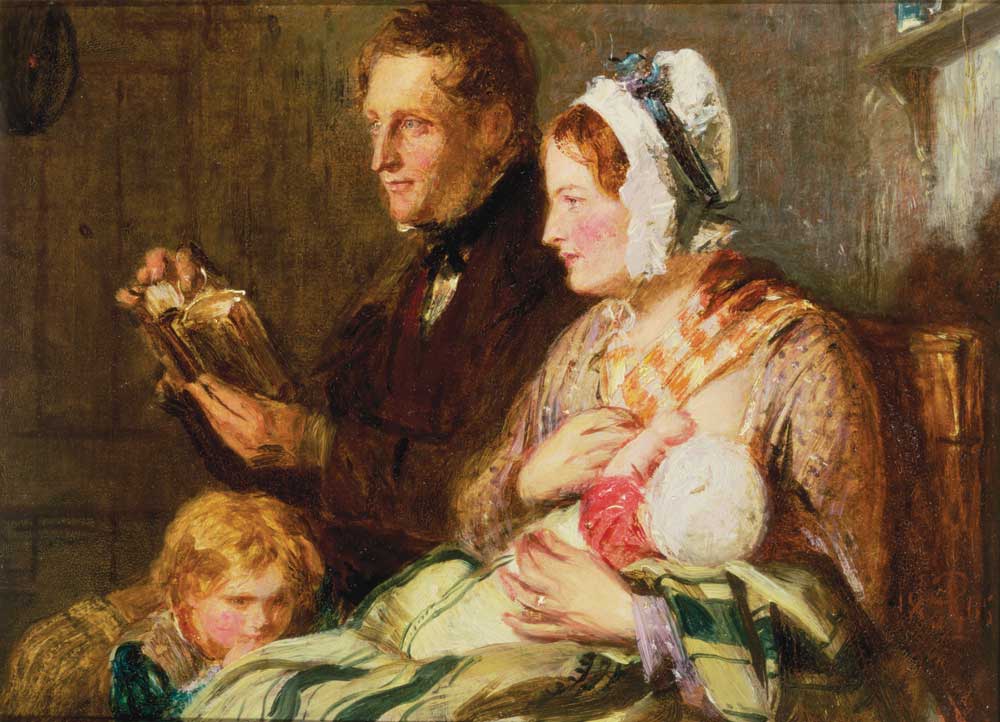View
Glory to Be Revealed
W. Ross Blackburn on How Bodily Resurrection Informs Social Justice
As a young man studying for orders in the Episcopal Church, I remember Steve Smith, a seminary professor of mine, once saying, "Tell me what you believe about the Resurrection, and I'll tell you who you are!" I don't think the words were his (he might have been quoting Barth, but I'm not sure), but they stuck with me, particularly at a time when the doctrine of the Resurrection was increasingly being dismissed in the Episcopal Church. For all its provocative boldness, I suspect Dr. Smith was right. The Resurrection is that important, and that defining.
Which brings me to a provocative Easter-season article I read last spring. In "After Boomer Religion" (commonwealmagazine.org/after-boomer-religion), Wesley Hill makes a remarkable claim: that mainline Protestants, particularly within the Episcopal Church, of which he is a member, are moving back toward a belief in the bodily resurrection of Christ. This embrace of the Resurrection does not come at the expense of the progressive (or, in Hill's words, left-of-center) social-justice concerns embraced by the mainline, but in fact undergirds those concerns. Encouraged by this "turn to orthodoxy," Hill writes, "The future of mainline Protestantism will see a tight connection between radical politics and the hope of the bodily resurrection. Lose the latter, and the former will ultimately be lost too."
Hill's claim is arresting, particularly given the way in which social concerns, particularly those concerning human sexuality, continue to divide the mainline churches, the Methodist Church being the most notable recent example. The claim also raises the deeper question of the relationship between the Resurrection and social justice, a theological question with tremendous practical import for the faithfulness and witness of the Christian Church. Hill may be right that the mainline church is seeking to hold the bodily resurrection together with left-of-center social justice concerns, but it does not follow that doing so is either sustainable or faithful.
The Question of Justice
The difficulty of Hill's claim is rooted principally in an ambiguous conception of social justice. Hill, of course, is right when he writes that Christian theology calls forth a concern for the poor and the oppressed, and that it even (though more arguably) calls for political action. Seeking justice has always been at the center of Christian faithfulness. But what, specifically, is justice? Hill sees the future of the mainline as including Protestants who are "left-of-center in their politics, LGBTQ-affirming, and committed to all manner of other progressive social-justice causes." While he acknowledges that there is discussion to be had concerning the priority of those causes, and perhaps the legitimacy of some, he implies that left-of-center social justice concerns are consistent with, or perhaps a consequence of, the biblical call for justice.
Perhaps some are. But Hill is too thoughtful flatly to identify the politics of the left with the justice of the Bible. Many questions are left unanswered. For instance, to cite the one place he gets specific, what does he mean by "LGBTQ-affirming?" Elsewhere, Hill has both upheld Christian marriage and thoughtfully challenged the Church concerning how gay and lesbian people might find their place in the Body of Christ as they, with the rest of the Body, seek to live in a chaste and biblically faithful manner. But that challenge is a far cry from many prominent left-of-center political programs, such as normalizing sexual relations between same-sex partners and equating their relationships with marriage, promoting contraception as health care, or ensuring that a transgender person can use the bathroom of his choice. Or, to use the most prominent example that divides the political left from the right, on which side of the fence at an abortion clinic should one find a Christian? Does it depend? Does it matter? Pro-choicers and pro-lifers both appeal to justice. Yet they do not agree about what justice means.
Hill is certainly right when he writes that the Resurrection and justice are tightly connected. Yet this is true only insofar as justice is understood biblically. Not everything called justice is justice, for justice always takes a specific form, a point increasingly difficult to appreciate in a world where we have exchanged virtues for "values." Furthermore, it is simply not true that left-of-center social-justice concerns are lost if the Resurrection is denied. In today's political climate, for instance, there is no shortage of people who don't believe in the Resurrection and yet are deeply invested in radical politics—Alexandria Ocasio-Cortez being perhaps the most visible, but hardly the only, example.
In fact, one of the characteristics of the politics of the left, broadly speaking, is a general but decided move away from the Christian faith, and particularly Christian sexual mores. It is therefore difficult to see how the politics of the left, broadly understood, requires a belief in the Resurrection, even within the Church. For example, whatever you think of the pro-life movement, it is largely a Christian movement, and in the main a decidedly Catholic and Evangelical one. If every person who believes in the Resurrection left the pro-life movement, it would collapse. If the same happened on the other side, the pro-abortion movement would carry on.
The Promise of Restoration
Why would this be? In the end, belief in the Resurrection is not simply about believing that Jesus rose bodily from the dead. Jesus' bodily resurrection is, of course, central, but the implications of the Resurrection only begin with the empty tomb. Paul writes,
For I consider that the sufferings of this present time are not worth comparing with the glory that is to be revealed to us. For the creation waits with eager longing for the revealing of the sons of God. For the creation was subjected to futility, not willingly, but because of him who subjected it, in hope that the creation itself will be set free from its bondage to corruption and obtain the freedom of the glory of the children of God. For we know that the whole creation has been groaning together in the pains of childbirth until now. And not only the creation, but we ourselves, who have the firstfruits of the Spirit, groan inwardly as we wait eagerly for adoption as sons, the redemption of our bodies. For in this hope we were saved. (Rom. 8:19–24)
For Paul, the Resurrection is not just about Jesus rising bodily, but about the restoration of a fallen and corrupt world, and in particular about God's victory over the sin that has confused and corrupted it. So understood, the Resurrection raises serious problems for parts of the left-of-center political agenda. For example, the Resurrection means that a man who has sought to become a woman will not be raised bodily as a woman, but as a man—the man he was created to be, and therefore as the man he truly wants to be. In other words, the desire of his heart, once freed, will be fulfilled not by being who he thought he wanted to be, but by becoming who he was created to be.
For those wrestling with gender confusion, this is good news indeed, even if the implications seem far away and difficult to embrace. People who try to alter their sex have given up hope in who God created them to be (in Elisabeth Elliot's words, "in God's idea of them"), sometimes resorting to destructive surgeries and other measures that cannot be undone. That the attempted suicide rate of transgender people is as much as ten times higher than it is in the general population is a solemn testimony of both the despair many experience and of the fact that one cannot just decide to be someone other than who God has created him to be.
Realizing that we cannot change our sex is not to deny or to belittle the suffering and affliction some people experience. Rather, it is to take such suffering seriously, by offering the hope that there will be a day when the sufferings of this present time will give way to the glory that God has promised, of which the Resurrection of Jesus is a pledge. Belief in the Resurrection, then, is more than just accepting that Jesus, once dead, rose again, but is an affirmation of the goodness of the created order, defiled by sin and awaiting the promise of restoration in that day when God will finally set all things right. When justice will reign.
Leading to Love
I am well acquainted with the world of the mainline. As one raised and ordained into the Episcopal Church, and who has now departed it, I know that many who left the Episcopal Church did so not because they were "clucking their tongues," but out of love for God and for others who were being misled—and therefore harmed—by the shifting doctrine of the church, including (and perhaps especially) the doctrine of the Resurrection.
In the end, the Resurrection leads us not just to justice, but to love. It is one thing to be well-intentioned. And there is no doubt that there are many in our world, including our political world, who mean well. But to be well-intentioned apart from knowing the good as God has given it, specifically, can never lead to the flourishing of ourselves or others, and can often lead to harm. Love is willing the best for another, and we can only do that as we apprehend the best—the world as God has created it and as, in Christ, he will one day restore it.
Indeed, what we believe about the Resurrection shows who we are.
W. Ross Blackburn is the rector of Christ the King, an Anglican Fellowship in Boone, North Carolina. He also writes weekly reflections for the Human Life Review's website on matters of life.
subscription options
Order
Print/Online Subscription

Get six issues (one year) of Touchstone PLUS full online access including pdf downloads for only $39.95. That's only $3.34 per month!
Order
Online Only
Subscription

Get a one-year full-access subscription to the Touchstone online archives for only $19.95. That's only $1.66 per month!
bulk subscriptions
Order Touchstone subscriptions in bulk and save $10 per sub! Each subscription includes 6 issues of Touchstone plus full online access to touchstonemag.com—including archives, videos, and pdf downloads of recent issues for only $29.95 each! Great for churches or study groups.
Transactions will be processed on a secure server.
more on theology from the online archives
more from the online archives
calling all readers
Please Donate
"There are magazines worth reading but few worth saving . . . Touchstone is just such a magazine."
—Alice von Hildebrand
"Here we do not concede one square millimeter of territory to falsehood, folly, contemporary sentimentality, or fashion. We speak the truth, and let God be our judge. . . . Touchstone is the one committedly Christian conservative journal."
—Anthony Esolen, Touchstone senior editor












